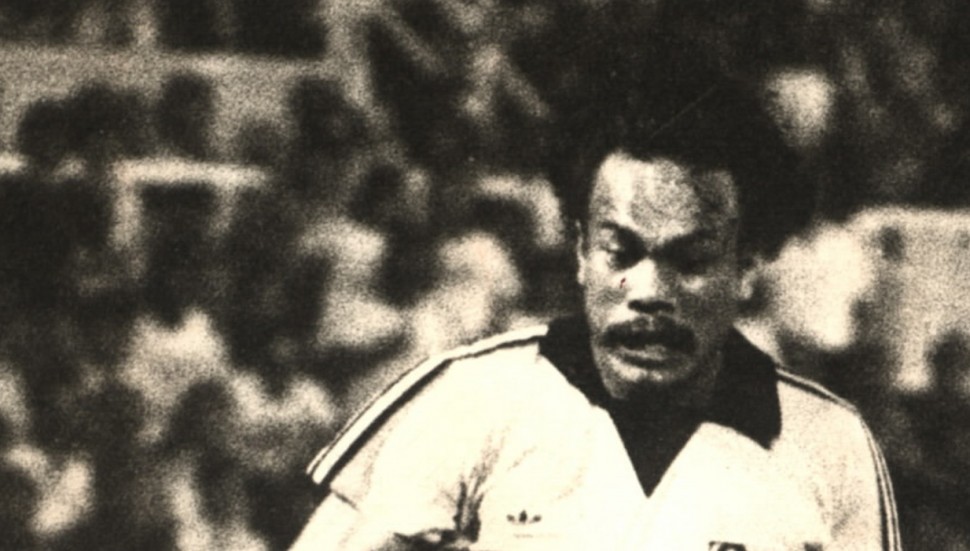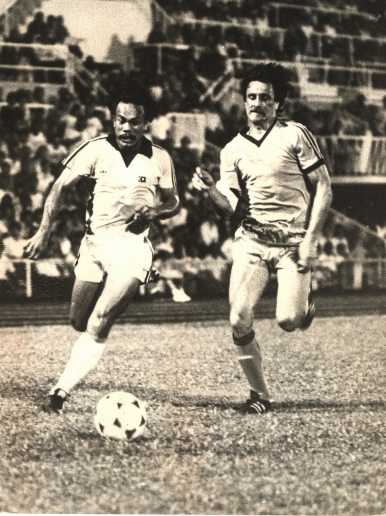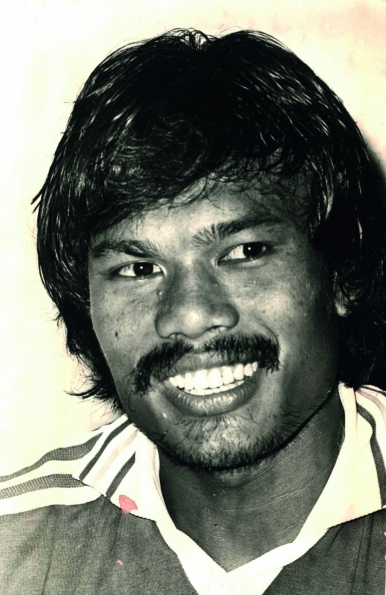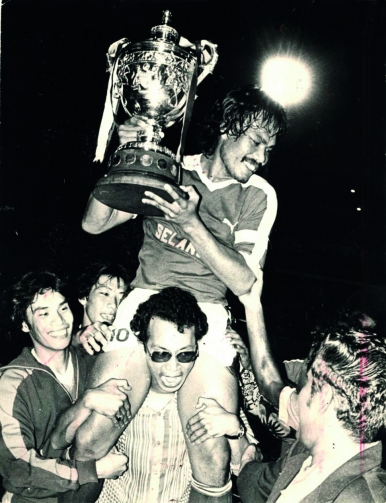Malaysian footballing great Mokhtar Dahari remains a household name and continues to inspire years after his death

Arguably the best footballer to don Malaysia's colours, Mokhtar Dahari (fondly dubbed ‘Supermokh’) was a determined man who trained hard – so hard that one of his shots during practice was said to have broken three fingers of the goalkeeper attempting to stop the ball.

Rigorous training underpinned Mokhtar's form and brought him a sparkling career spanning two decades. Mokhtar helped lift Malaysia's national team from minnows to among Asia's best, playing a crucial role in milestone victories over the likes of South Korea and Japan. He had an instinctive ability to link up with his teammates, who together ushered in a golden era in Malaysian football from the mid-70s through the mid-80s.
Robustly built and comfortable shooting with either foot, Mokhtar's style of play was aggressive. He was also speedy and powerful, making him capable of lethal long-range shots and marauding runs that opened up opposition defences.
Mokhtar was a prolific goal scorer with a fearsome record: 125 goals in 167 international appearances for Malaysia. Some were particularly memorable. In one outing, cheered by capacity crowd of 30,000, Mokhtar scored twice to earn Malaysia a 2-0 victory over a visiting Arsenal side in 1975. His first goal came from a solo run after connecting with a lob and the second from a deft link up with teammate Isa Bakar.

If these feats weren't enough to propel Mokhtar into the national consciousness, there was more to come. Playing against a visiting England B side in 1978, he slotted the ball past Manchester City great, Joe Corrigan, for a full-time score of
1-1. Writing years later in the Malaysian daily, New Straits Times, in 1986, Mokhtar rated the goal as one of his most unforgettable.
The son of a lorry driver, the footballer was a precocious talent. By the time he was 14, he had made the senior team at school, besting older boys at Victoria Institution. The year he turned 19, Mokhtar got the call up to represent Selangor state in the domestic football league and Malaysia's national squad. Captainship of both the state and national teams followed, along with the number 10 jersey.
Mokhtar had become part of a formidable team by that time, flanked by other Malaysian greats such as Soh Chin Aun, Santokh Singh and R. Arumugam. Together, they made up the multiracial face of Malaysian football, as talented as it was diverse.
The depth of the team showed with a yet-to-be-equalled bronze at the 1974 Asian Games in Tehran, Iran, beating South and North Korea en route. “No one gave us a ghost of a chance, we didn't much fancy our chances either. Yet against all the odds, we won the Asian Games bronze medal,” Mokhtar wrote in the New Straits Times article.

Back-to-back Southeast Asian Games Gold medals followed in 1977 and 1979 with Mokhtar scoring in each. He was the first footballer to win Malaysia's Sportsman of the Year award, in 1976.
As he came to be known as Asia's best, talk of foreign offers began to circulate. In his 1995 book, Giving The Game Away, Stephen Wagg asserted that Mokhtar declined an offer from Spanish side, Real Madrid.
Mokhtar himself said little on the matter but in an interview with National Geographic in 2010, his wife painted a picture of a patriotic and modest man with little interest in the trappings of fame. Mokhtar retired in 1987 and had a stint as coach but his health began to fail. He succumbed to motor neuron disease in July 1991 after a three-year battle. He was only 37.
He remains a household name in Malaysia till this day. Mokhtar's humble beginnings, dedication as a player and tragic death have been retold in different ways, among them in a sold-out musical titled Supermokh.









